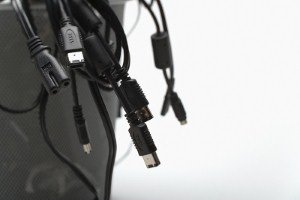WEEE collection rates unchanged despite digital switchover
London and many other parts of the UK have recently switched to digital television, so you would think the amount of waste electrical and electronic equipment being collected in the UK would have risen as old televisions become ineffectual. But new figures show this is not the case.
According to letsrecycle.com, data published by the Environment Agency shows that WEEE collection rates remained largely unchanged for the first three months of the year, even though processors of the waste were expecting to be hit by a barrage of old analogue equipment.
This suggests that either households were well prepared for the switch and did not need to purchase new television sets, they have kept hold of their old ones for whatever reason, or the country has made little progress on recycling this kind of electrical waste.
The WEEE Directive was introduced into UK law in January 2007 and encourages consumers, retailers and manufacturers to properly reuse or recycle all kinds of electrical and electronic equipment, from stereos and microwaves to consumer units and LED lamps.
Overall 47.5 per cent of all new electronic equipment coming on to the UK market by members of producer compliance schemes in the first quarter of the year was recycled, compared to 48.7 per cent in the same period in 2011.
In terms of weight, just over 35,000 tonnes of television equipment was collected for recycling or reuse between January and March 2012 compared to just over 37,000 in the first quarter of last year, although it is thought that lighter LCD TVs may be responsible for this.
Duncan Simpson, director of sales and marketing at WEEE compliance scheme Valpak, told letsrecycle.com: "There appear to be small decreases in tonnages collected but nothing out of the ordinary considering the present economic climate. Changes are more reflective of falls in UK sales as opposed to drop off in participation and collection rates.
"What is important is that we catch and collect as much as possible within the system rather than lose material to unregistered scrap roots, metal theft and other ways in which material falls outside of WEEE regulations for collection."

